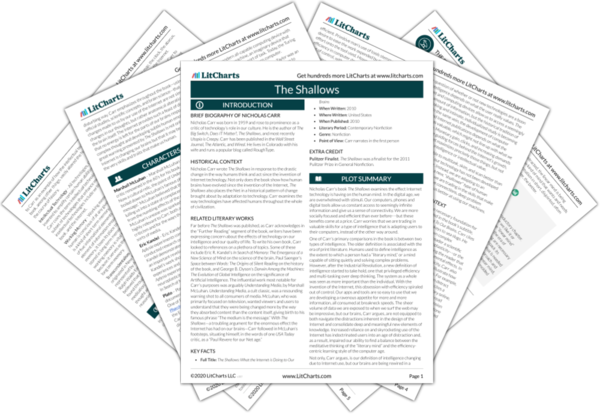All technologies, Carr argues, were invented to amplify certain human abilities. In
The Shallows, Carr coins the term intellectual technology to refer to the subset of technologies that enhance mental skills. Examples of intellectual…
read analysis of Intellectual Technology
